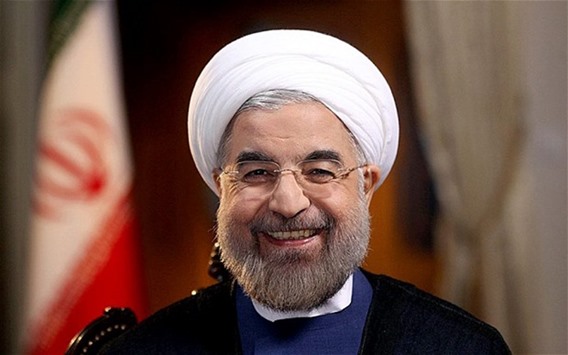Iran will hold run-off elections next month for 69 parliamentary seats where no candidate secured 25% of votes cast in a general election on February 26, state radio said yesterday.
Results so far show moderate allies of President Hassan Rouhani making big gains from the conservative Islamic establishment but neither faction has a majority, meaning the run-offs will decide who controls the 290-seat parliament.
A reformist-backed list of candidates aligned with Rouhani won all 30 parliamentary seats in Tehran and his allies have underlined the importance of the April run-offs, which will decide who dominates parliament.
“Our aim is to get at least 40 of the 69 seats in the run-off elections to secure the majority in the next parliament,” said former vice-president Mohammad Reza Aref, who won the first seat in Tehran.
In a parallel vote on February 26, Rouhani and his allies won a stunning 15 out of the 16 Tehran seats in the 88-member Assembly of Experts, which selects the person with the most clout in Iran, the supreme leader.
Some 62% of nearly 55mn eligible Iranians voted in February’s twin elections, the first since a nuclear deal was reached with six major powers in 2015 to curb Tehran’s nuclear programme in return for an easing of economic sanctions.
Supporters of Supreme Leader Ayatollah Ali Khamenei and Rouhani’s moderates both claimed victory in the elections, from which prominent reformist and many moderate candidates were disqualified by the Guardian Council, a hardline vetting body.
“We will hold the second round of the parliamentary election on April 29, as approved by the Guardian Council,” state radio quoted Interior Ministry official Ali Motlagh as saying.
The poll results have to be confirmed by the Guardian Council, which has so far approved just over 50 constituencies out of 196. The new parliament and the Assembly of Experts will start work on May 27.
The capital’s results were a blow to the hardline clerical rulers, although they retain decisive power due to Iran’s unwieldy dual system of clerical and republican rule.
Conservatives, wary of losing their grip in the next parliament, aim to gain more seats by winning run-off elections outside the capital. Most of the lawmakers who failed to win re-election had strongly opposed the nuclear deal.
Iran lacks rigid party affiliations and some candidates are backed by various political camps, which makes it difficult to specify which faction has won a parliamentary majority.
An unofficial tally by Reuters shows conservatives have so far won about 112 seats in parliament, reformers and centrists 91 and independents and religious minorities 18.
A loosening of control by the anti-Western hardliners who currently dominate parliament could strengthen Rouhani’s hand to open Iran further to foreign trade and investment following lifting of sanctions in January under the nuclear deal.
But many analysts and officials expect a sudden shift in power in Iran as the president’s legal authority to permit more social and political freedom is constrained by hardliners’ control of the judiciary, security forces and state media.
Missile tests don’t violate nuclear deal: Iran FM
Tehran’s recent ballistic missile tests did not violate a UN resolution and were not illegal, Foreign Minister Mohammad Javad Zarif said yesterday after being questioned on the issue by Australia.
The UN Security Council met on Monday at the request of the US to discuss the missile tests that have raised the prospect of new sanctions.
But Zarif said that under Resolution 2231, adopted a few days after Iran struck a landmark nuclear deal with world powers last year, Tehran was within its rights to carry out the tests.
He said the wording of the resolution did not use obligatory terms so “Iran is not obliged by 2231”.
Secondly, it covered only missiles “designed to be capable of carrying nuclear warheads”, he told reporters in Canberra.
“Since we do not have nuclear warheads and we have undertaken not to develop them, and the international community has put in place the best mechanisms money can buy in order to make sure that we do not develop nuclear weapons... we do not design any missiles to carry things we do not have,” Zarif said.
“So these missiles do not fall within the purview of 2231 and they are not illegal.”
Iran fired two long-range ballistic missiles on March 9, one day after similar tests that came fewer than two months after the Iran nuclear deal was implemented.
Zarif stressed that the missiles were being developed only for Iran’s defence.

President Hassan Rouhani
